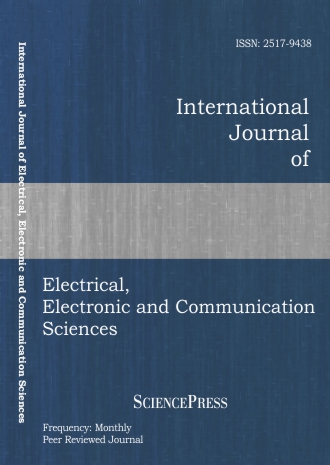
Scholarly
Volume:2, Issue: 4, 2008 Page No: 663 - 669
International Journal of Electrical, Electronic and Communication Sciences
ISSN: 2517-9438
992 Downloads
A Distributed Topology Control Algorithm to Conserve Energy in Heterogeneous Wireless Mesh Networks
A considerable amount of energy is consumed during transmission and reception of messages in a wireless mesh network (WMN). Reducing per-node transmission power would greatly increase the network lifetime via power conservation in addition to increasing the network capacity via better spatial bandwidth reuse. In this work, the problem of topology control in a hybrid WMN of heterogeneous wireless devices with varying maximum transmission ranges is considered. A localized distributed topology control algorithm is presented which calculates the optimal transmission power so that (1) network connectivity is maintained (2) node transmission power is reduced to cover only the nearest neighbours (3) networks lifetime is extended. Simulations and analysis of results are carried out in the NS-2 environment to demonstrate the correctness and effectiveness of the proposed algorithm.
Authors:
References:
[1] I. F. Akyildiz, X. Wang and W. Wang, "Wireless mesh networks: a